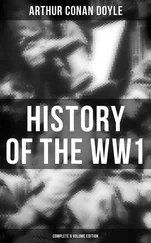Yet another scene of desperate valour was witnessed at Zutphen before the campaign came to an end. One principal protection of the town was an external sconce,[129] which on a former occasion had resisted the troops of the States for a whole year, and was now carried by the English by assault. The breach was barely practicable, the footing on the treacherous sandy soil being so uncertain that the storming party could hardly mount it. Their leader, Edward Stanley, however, was not to be turned back. Dashing alone into the breach he caught the head of a Spanish soldier's pike that was thrust out against him and tried to wrench the weapon from his grasp. Both men struggled hard for a time, while a dozen pikes were broken against Stanley's cuirass and a score of bullets whistled about his ears. At last Stanley, without quitting his hold, allowed the Spaniard to raise the pike, used the purchase so gained to help him up the wall, scrambled over the parapet and leaped down alone into the press of the enemy with his sword. His men, redoubling their efforts, hoisted each other up the breach after him and the sconce was won. Stanley, marvellous to say, escaped unhurt, and received not only warm commendation in Leicester's despatches, but a pension for life from Leicester's own pocket, for the most daring act that is recorded of the whole of that long war.
1587.
1588.
The plot of the Spanish Armada now began to thicken, and the scene must be shifted for a moment to England. In the Low Countries Parma was looking about for a port of embarkation from which to ship his men across the North Sea. He fixed upon Sluys, and in spite of a desperate resistance from a handful of gallant Englishmen, led by Roger Williams, he succeeded in capturing it after a siege of three months. At the end of 1587 Leicester resigned his command and returned to England; and in the following year all the best officers, and many of the English companies, were gathered together in the camp at Tilbury. Leicester was in chief command, with John Norris for his second, and Roger Williams among others for assistant, but these officers were not on very friendly terms with each other; and, indeed, the less said of Tilbury Camp as a whole the better. Contemporary writers indeed aver that it was a pleasant sight to see the soldiers march in from the various shires, "with cheerful countenances, courageous words and gestures, leaping and dancing";[130] but such a display was a better indication of loyalty than of discipline, and sadly different from the pace, full of gravity and state, which had been enjoined by the best authorities. There was, moreover, great disorder and deformity of apparel; most of the men wore their armour very uncomely, and the whole army refused point-blank to use the headpieces issued from the Tower. Ammunition again was short, provisions were scanty, organisation was extremely defective, and the general confusion incredible. Four thousand men who had marched, pursuant to orders, twenty miles into Tilbury, found that they must go that distance from the camp again before they could find a loaf of bread or a barrel of beer. A thousand Londoners who were likewise in the march were ordered to halt unless they could bring their own provisions with them. Leicester might safely remark that "great dilatory wants are found upon all sudden hurly-burlies,"[131] but there was no excuse for such chaos after the incessant warnings of the past thirty years. Elizabeth must bear the chief share of the blame. The woman who in her imbecile parsimony starved the fleet that went forth to fight the Armada could not be expected to show better feeling towards the army. It was no thanks to the Queen that the Spanish invasion was repelled.
1589.
1590.
I shall not follow the veterans John Norris and Lord Willoughby on their expeditions to Corunna and Brittany in the following year. Far more important to us is the rise of a great leader, and the opening of a new era in the war of the Low Countries. On Leicester's resignation of the chief command, there was appointed to succeed him a man whose name must ever be venerated in the British Army, Prince Maurice of Nassau,[132] second son of William the Silent. Though but twenty years of age when selected as Governor and Commander-in-Chief of the United Provinces, he had already made up his mind that if the War of Independence were to end in victory it must be fought not, as heretofore, with a mob of irregular levies, but with a trained, disciplined, and organised army. His own natural bent lay chiefly towards mathematics, which he cultivated as a means to the mastery of military engineering, and eventually reduced to practice by so sedulous a use of the spade in all military operations as to provoke many a sneer from soldiers of a more primitive type. But Maurice knew his own mind, and was not to be deterred by sneers. His principal assistant was his cousin, Louis William, Stadtholder of Friesland, an industrious student of classical antiquity with the rare faculty of adapting old systems to modern requirements. To his diligence was due the instruction of the army in drill and discipline, and to his influence must be ascribed Maurice's admiration for the Tactics of Ælian.[133] His new and elaborate manœuvres also elicited the scorn of the old school of officers,[134] but he too was not easily discouraged; and the two cousins worked hand-in-hand, the one at the broader principles, the other at the hardly less important details, of their profession, until they raised up an army which supplanted the Spanish as the model for Europe. Not the least weighty of Maurice's reforms was the regular payment of the men, and the stern repression of fraudulent practices among the officers. In a word, he appreciated the value of sound administration no less that of pure military skill and training in the conduct of a war.
The tactical organisation of the new army was not so perfect as, with the Spanish model before us, we might with reason have expected. The tactical unit of infantry was the company, and the regiment still consisted of an uncertain number of companies temporarily united under the command of a colonel. The composition of the companies again was uncertain. The normal strength was one hundred and thirteen men, which was later reduced to eighty, but colonels had double companies—some even double regiments—and there appears to have been no very great exactitude, probably because men could only be persuaded to serve under the captain of their choice. The officers of a company were of course captain, lieutenant, and ensign; the non-commissioned officers included two sergeants and three corporals, as well as a "gentleman of the arms," who was responsible for the condition of the weapons. Lastly, there were two drummers, who, it should be noted, like the trumpeters in the cavalry, were not the mere signal-makers that they now are, but the men regularly employed in all communications with the enemy, and as such expected to possess not only discretion but some skill in languages. They received far higher pay than the common soldier, and if they did a tithe of that which was expected of them they were worth every penny of it.
Every company was divided into three corporalships, each of which was the peculiar care of one of the three corporals and of one of the three officers. In equipment there were at first three descriptions of arms—halberds, pikes, and muskets—of which however the halberds soon disappeared, leaving pikes and shot in equal numbers, but with an ever-growing tendency towards preponderance of shot. The normal formation of a company was in ten ranks; and the men were never less than three feet apart from each other, such open order being essential to the execution of the prescribed evolutions. To increase the front, the ranks were doubled by moving the even ranks into the intervals of the odd; to diminish the front, the files were doubled by the converse process.[135] To take ground to flank or rear every man turned to right or left or about on his own ground, and it is worth remarking that the best men were always stationed in the front rank and the next best in the tenth, and that while the captain was posted in front of his company, the lieutenant, except in a charge, remained always in the rear.
Читать дальше












